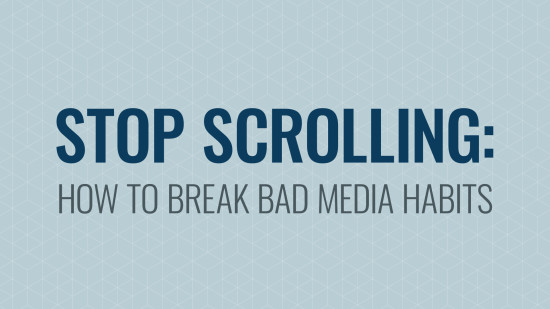Have you ever been reluctant to speak up on a topic for fear of being “canceled” by friends (or, similarly, afraid they would judge you for not speaking up)? Or, if you are someone who does openly speak your mind, are you constantly experiencing arguments, pushback, or misunderstandings as a result?
Using the “power of the tongue” wisely has always been a challenge (Proverbs 18:21). It is even more difficult in today’s world, where online apps can amplify your voice while distancing you from the people you are talking with. How can we, as Christians, use our voices for good in a world of social media, misinformation, and “cancel culture”?
The book of Proverbs has a lot to say about how we should communicate. Though it was written almost 3,000 years before smartphones and trending topics, it is perhaps even more relevant in today’s information age than in Solomon’s time.
Here’s how you can use the wisdom of Proverbs to guide how you speak, whether online or off:
Speak the Truth
“A truthful witness saves lives, but one who breathes out lies is deceitful.” (Proverbs 14:25)
At first glance, this is preschool-level stuff: don’t lie. Lying is a sin. Speak the truth instead (Ephesians 4:25).
However, to speak the truth, you must know the truth. One problem in today’s information age is that people often “breathe out lies” that they wrongly think are true. If something fits with your preconceived narrative, then you want it to be true and might assume that it is true without bothering to check. So, speaking the truth requires you to:
- Listen. “If one gives an answer before he hears, it is his folly and shame.” (Proverbs 18:13) You can’t listen and speak at the same time. You need to listen first. Listen so that you can…
- Understand. “A fool takes no pleasure in understanding, but only in expressing his opinion.” (Proverbs 18:2) Sometimes this means understanding the issue or the facts involved; sometimes it includes understanding the other person and where they are coming from.
- Avoid jumping to conclusions. “The one who states his case first seems right, until the other comes and examines him.” (Proverbs 18:17) You have to wait to get all the facts. A single statement might be incorrect, misunderstood, or taken out of context. Even video evidence usually only shows what is happening inside the frame, from one angle, and does not show what happened before or after. How many times have we seen mass outrage over something taken out of context, only to (much later, and with much less coverage) learn that the real story was far different?
- Think critically about what you hear. “The simple believes everything, but the prudent gives thought to his steps.” (Proverbs 14:15) If something is reported that seems outrageous or hard to believe, think: what might be the rest of the story? What could possibly make this make sense?
- Stop listening to liars. “Leave the presence of a fool, for there you do not meet words of knowledge.” (Proverbs 14:7) You need to recognize who is untrustworthy and prone to giving you wrong information. They may or may not be intentionally lying; they could just be making the mistake of jumping to conclusions or not doing the work to listen and understand. To determine whether a claim is true, you’ll probably need to seek out other reliable sources, or go to the original source (instead of just someone who is reporting on it).
Speak Out of Love
“Better is open rebuke than hidden love. Faithful are the wounds of a friend; profuse are the kisses of an enemy.” (Proverbs 27:5-6)
You should speak the truth in love (Ephesians 4:15) and “Let all you do be done in love” (1 Corinthians 16:14).
Speaking out of love means having the right motivations. You should sincerely seek the best for those you are speaking to. For example:
- Don’t speak in anger. “There is one whose rash words are like sword thrusts, but the tongue of the wise brings healing.” (Proverbs 12:18) There’s a high likelihood that you’ll regret lashing out in anger.
- Don’t speak in revenge. “Be not a witness against your neighbor without cause, and do not deceive with your lips. Do not say, ‘I will do to him as he has done to me; I will pay the man back for what he has done.’” (Proverbs 24:28-29) Leave the vengeance to God and pursue forgiveness.
- Don’t gossip. “For lack of wood the fire goes out, and where there is no whisperer, quarreling ceases.” (Proverbs 26:20) Are you complaining on social media about someone, instead of to them? Don’t air a grievance to your dozens/hundreds/thousands of followers; go directly to the person instead.
- Don’t speak (or refuse to speak) out of fear of others. “The fear of man lays a snare, but whoever trusts in the Lord is safe.” (Proverbs 29:25) There is no fear in love (1 John 4:18). The right thing to say is still the right thing even if it makes you less popular. And you should avoid saying the wrong thing even if you’re pressured to speak up.
Think Before You Speak
“The heart of the righteous ponders how to answer, but the mouth of the wicked pours out evil things.” (Proverbs 15:28)
It’s not just what you say that matters, but how you say it, where you say it, when you say it, and who you are saying it to.
- Weigh your words. “The heart of the wise makes his speech judicious and adds persuasiveness to his lips.” (Proverbs 16:23) We should strive to be gentle (Proverbs 15:1), kind (Proverbs 31:26), gracious (Proverbs 16:24), timely (Proverbs 15:23), patient (Proverbs 25:15), and persuasive (Proverbs 16:21) in our speech.
- Don’t get into fights. “It is an honor for a man to keep aloof from strife, but every fool will be quarreling.” (Proverbs 20:3) Some people like to argue and are quick to jump into a war of words. But “Whoever meddles in a quarrel not his own is like one who takes a passing dog by the ears” (Proverbs 26:17). Besides, arguing with someone, especially online, usually just causes that person to entrench their position (Proverbs 18:19). It rarely makes them change their mind.
- Be wise about fools. “Do not speak in the hearing of a fool, for he will despise the good sense of your words.” (Proverbs 23:9) The book of Proverbs is full of warnings about fools. Wise people want to be corrected when they are wrong, and they’ll love you for it. Fools, however, will hate you and attack you for it (Proverbs 9:7-9). This is one of the reasons why online comments sections are such a dumpster fire. Foolish people (and bots) don’t want to listen; they just want to argue. At the very least, you need to know what you’re getting into and count the cost (Proverbs 26:4-5).
- Be slow to speak. “Do you see a man who is hasty in his words? There is more hope for a fool than for him.” (Proverbs 29:20) Listening first and thinking before you speak means you won’t be the fastest to speak, and therefore also might not speak as much. And that’s OK. Holding your tongue can keep you out of trouble (Proverbs 10:19; Proverbs 13:3; Proverbs 21:23), and it gives more weight to the words you do speak (Proverbs 17:27-28).
It’s worth noting that being slow to speak doesn’t mean you never speak. Sometimes love will require you to speak up to others (Proverbs 27:5-6) or for others (Proverbs 31:8-9). For some people, the takeaway from Proverbs will be that you should speak more, not less. You just want to be wise in how you do speak up, by speaking the truth, speaking out of love, and thinking before you speak.
Bonus: Proverbs Checklist
If you would rather have all this in a handy checklist form, here are the same points condensed into questions you can ask yourself when considering how or when you should speak up:
Am I speaking the truth? (Proverbs 14:25)
- Have I listened first? (Proverbs 18:13)
- Do I understand what I am talking about and who I am talking to? (Proverbs 18:2)
- Have I heard both sides of the story? (Proverbs 18:17)
- Should I believe what I have heard? (Proverbs 14:15)
- Can I trust the source? (Proverbs 14:7)
Am I speaking in love? (Proverbs 27:5-6)
- Or am I motivated by anger? (Proverbs 12:18)
- Or am I motivated by revenge? (Proverbs 24:28-29)
- Or am I gossiping? (Proverbs 26:20)
- Or am I choosing to speak (or refusing to speak) out of fear? (Proverbs 29:25)
Am I thinking before speaking? (Proverbs 15:28)
- Is this the best way to say what I need to say? (Proverbs 16:23)
- Will this just turn into a fruitless argument? (Proverbs 20:3)
- Is this person going to really listen to what I have to say? (Proverbs 23:9)
- Am I more concerned with speaking quickly or speaking correctly? (Proverbs 29:20)


